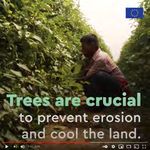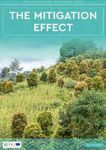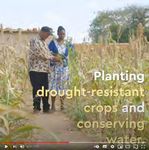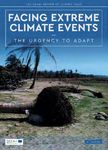COMMUNICATING EU CLIMATE ACTION - Where you can find
←
→
Page content transcription
If your browser does not render page correctly, please read the page content below
C O M M U N I C AT I N G E U C L I M AT E A C T I O N
Where you can find
EU GCCA+
Communication info@gcca.eu
Guidelines
Send us
your material
stories
photos
videos
publications
Photos of
EU GCCA+ projects
EU GCCA+
We love to share it!
Collaborative Platform Fridays for Climate newsletter
programme fiches,
photos, documents Join our Community!
You Tube
Capacity4dev
Recent resources
on Climate Change
GCCA+ website
Newsletters
Contact
Communication and Knowledge
EUROPEAN COMMISSION Management expert
EUROPEAN COMMISSION
Global Climate
#GCCAPlus
International Change Alliance Plus (EU GCCA+)
Global Climate Change Alliance Plus (GCCA+)
Directorate General for francesca.predazzi@gcca.eu
Cooperation and Development
41, RueDirectorate General for International Partnerships #EUClimateAction
www.gcca.eu
de la Loi, B-1049 Brussels, Belgium
41, Rue de la Loi, B-1049 Brussels, Belgium #EUGreenDealsome of our products...
in-depth stories
stories
Stories from a changing world - 2020
The Global Climate Change Alliance Plus (GCCA+)
1 2 3 4
Protecting paradise in
the Dominican Republic
Building climate resilience
in the shadow of the
In Madagascar schools
are teaching students to
Ethiopia: the long
lasting benefits for Gonji
Stories from a changing world
Himalayas in Nepal teach their parents Kololah hillsides
2019
5 6 7 8 The Global Climate Change Alliance Plus (GCCA+)
1 2 3 4
Chad: solar energy Les Serres du Sud in Rainwater harvesting Harvest of hope:
brings water to people Mauritius in Bangladesh: Building sprirulina from Lake
and herds resilience, saving lives Chad
9 10 11 12
Trinidad and Tobago: Douda, in Djibouti, Moving NDCs one Making a drama out
Reducing aviation is one of the hardest step ahead: from of climate change in
emissions from the places I have ever theory to action Comoros
ground up visited
Women are decision mak- Madagascar: A worm’s Young forest rangers Beyond tourism: helping 5 6 7 8
ers in the East Usambara eye view of climate protecting the Amazon people and nature to
project in Tanzania change forest in Suriname thrive in the Maldives
13 14 15 16
See what seeds can Pacific islanders Saving Haiti s Myanmar: climate
do in Vanuatu work with nature Forests - One cook change can be
to combat climate stove at a time spookily quiet
change
Congo: Protecting the Rwanda: the long-term Rehabilitating the cattle Sounding the alarm
forest from an early age impact of land registra- corridor of Uganda against climate change 9 10 11 12
tion for climate action in Mozambique
www.gcca.eu
Senegal: the climate Myanmar: Now Malawi: farmer field Tanzanian farmers:
refugees from the we realise the schools empower having the courage
Venice of Africa importance of farmers to fight to adapt to climate
mangrove climate change change
www.gcca.eusome of our products...
GCCA+ timeline
virtual exhibition
social media videos
SHE Changes: Women and Climate Change
Access to safe water in Micronesia Youth awareness on climate change
Myanmar: Reforestation on devastated lands GCCA Comoros: Traditional octopus fishing Mangroves: The quiet achievers Chololo Village Tanzania: The story of James Climate Smart Agriculture in Suriname
helps turn the tide against climate changesome of our products...
magazines factsheets
ENERGY
FOR CLIMATE GCCA+ The Alliance for a changing world
#GCCAPlus #EUClimateAction #EUGreenDeal
KEY ISSUES GCCA+ ACTIONS
2020
OCEANS AND COASTS
Energy production and use is the largest source of global Energy related actions play an important role for
WATER
greenhouse-gas (GHG) emissions. Cities contribute 70% the Global Climate Change Alliance Plus (GCCA+)
of carbon emissions from energy consumed, meaning which supports 30 projects covering 32 countries. GCCA+ The Alliance for a changing world
that improved energy efficiency, especially in cities, is cru- They include renewable energy and/or energy effi-
FOR CLIMATE
cial to achieve Paris Agreement goals. Between 2010 and ciency projects.
#GCCAPlus #EUClimateAction #EUGreenDeal 2020
2015, global energy productivity has improved around Most projects boost institutional capacity by support-
2.3% per year, still below the 2.8% foreseen in the SDG 7.3. ing feasibility studies or renewable energy strat- KEY ISSUES GCCA+ ACTIONS
EU GCCA+ The Alliance for a changing world However, the positive impact of efficiency policies has been egies. These are followed by pilot applications like
overwhelmed by fast-growing demand for energy in solar powered water pumps for fields or livestock Oceans are the life source of our planet and vital for 23 projects worldwide funded through the Global Cli-
#GCCAPlus #EUClimateAction #EUGreenDeal emerging countries. (in Chad or Uganda), a solar power park to reduce healthy human societies and a thriving world economy. mate Change Alliance Plus (GCCA+) focus on coast-
2021 They cover 70% of the Earth’s surface, are the plan-
It is estimated 36% of the current energy emissions aviation emissions on the ground (Trinidad), bio- al areas. They address the negative effects of climate
KEY ISSUES EU GCCA+ ACTIONS can be saved by improving energy efficiency which is gas plants (Cambodia), and solar bottles (Tanzania). et’s largest biosphere, and home to 50-80% of all change on the coastal ecosystems, the coastal popula-
Energy efficiency is addressed through the promotion life on Earth. Global warming is having significant tions and their economic activities.
increasingly recognized as ‘the hidden fuel’ that will com-
Freshwater is an essential element of life on earth. Water is a very broad theme, which is approached in of efficient cooking stoves, improved production of negative effects on ocean ecosystems.
plete the transition towards a low-carbon energy system. Major support is provided for the development of Inte-
Yet, freshwater represents only 3% of the world’s many ways by Global Climate Change Alliance Plus (EU charcoal, and energy efficient buildings (Djibouti). Warmer oceanic waters are resulting in ocean acidi-
water, and only one third is available for human use Energy efficiency is central to achieving the energy and grated Coastal Zone Management (ICZM) policies
GCCA+) programmes. It is in the first place about wa- fication, deoxygenation, marine heat waves, changes
climate goals of countries around the world. It remains the GCCA+ programmes support climate change miti- and strategies based on research and vulnerability as-
(UN-Water). ter scarcity (and supply), but also about sanitation,
lowest-cost option to meet national climate change gation by reducing emissions and increasing energy in ocean productivity and ocean circulation, as well as
irrigation, water resources management and efficient sessments.
Water use has been increasing worldwide by about changes in biodiversity. Climate change effects such
commitments. efficiency.
1% per year since the 1980s, says the UN World Water water use (techniques and awareness-raising in agri- as sea level rise, enhanced sea surges and tropical Much attention goes to coastal protection measures,
report. About 3.6 billion people worldwide live in wa- culture, forestry and community water supplies). storms, also put coastal areas at risk. both nature-based (rehabilitation of mangrove forests)
ter-scarce areas (5.7 billion people by 2050). There are About half of all EU GCCA+ projects include activities and through infrastructure works. Another support area
Coastal zones are among the most productive areas in
several causes of global water scarcity, including related to Water, to varying degrees, across 55 coun- Cambodia: biogas makes it neat and cheaper is the promotion of sustainable fisheries and alter-
the world, 37% of the world’s population lives within
degradation of water quality, drought, uncontrolled use tries and at a value of 267 milion euros. Mr. Chhang Touch checks the light and the temperature inside the pigs pen native livelihoods, with (eco)tourism being a popular
100 km of the coast. Coastal ecosystems (mangroves,
of water, with consequences on health, impact on eco- Action varies from technical support through the estab- at his pig farm in Kompong Speu province, Cambodia. His is one of the pilot option.
farms that were able to reduce their electricity bill by 40 to 50%. Biodigest-
salt marshes, sea grasses) sequester and store large
systems, vulnerability to natural disasters and conflicts. lishment of small irrigation systems, drainage systems Awareness raising encourages partner countries to
ers not only allow saving money, they reduce CO2 emissions, generate a quantities of blue carbon in both the plants and the
Some progress has been made in the proportion of the to control erosion, rainwater-harvesting systems, to wa- cleaner environment for the animals and the possibility to use the bio-slur- sediment below and can store 2-3 times more carbon embrace adequate adaptation strategies and solu-
global population using at least a basic drinking water ter supply for humans and livestock, or awareness ry produced as a natural fertilizer. than rainforest. 83% of the global carbon cycle is tions. Many GCCA+ projects also include institutional
service (from 81% in 2000 to 90% in 2017). However, on water efficiency. The EU funded Cambodia Climate Change Alliance (CCCA), has supported circulated through the ocean. strengthening initiatives or support to research.
climate change is altering patterns of weather and See also Oceans and Coasts the Cambodian National Biodigester Programme (NBP) to reduce emissions
water around the world, contributing to unpredictability and increase people’s adaptation capacities.
of our most precious resource. See the full story on gcca.eu/stories A heart for mangroves in Suriname
Checking the light inside a pig’s pen using biogas power generator. Adjai and his friends are trained in mangrove tree planting by the Global Climate
Growing onions in the sand of Mauritius © EU GCCA+ Photo: Kimlong Meng Change Alliance Plus (GCCA+) rehabilitation project in Suriname. Mangrove for-
ests are important for maintaining biodiversity, storing carbon, and protecting the
Belle Mare is a small village situated on the eastern coastal side of coast against erosion and saltwater intrusion caused by sea level rise and storm
the island of Mauritius. Residents are mainly small planters highly surges. The project worked to set up a mangrove biodiversity monitoring system
vulnerable to a high incidence of pests and disease due to climatic covering the entire coast from Nickerie to Galibi. In the Bigi Pan National Park,
conditions such as high temperature and humidity. They also face Nickerie, known for its rich mangroves and home to the scarlet ibis, several small
the challenge of climate extremes, such as drought and high-in- initiatives to promote local tourism have also been undertaken.
tensity rainfall. See the full story on gcca.eu/stories
This is where the Global Climate Change Alliance Plus (EU GCCA+)
An expedition to plant new mangroves with the GCCA+ project in Suriname, © EU GCCA+
combines scientific knowledge from the University of Mauritius with 2020
nature-based solutions. Techniques include mulching, melliferous
plants, compost instead of fertilisers, biopesticides and drip irriga-
tion. This is how onions and other vegetables can grow in the sand.
See the full story on gcca.eu/stories
Climate smart cultivations at Belle Mare, Mauritius © EU GCCA+ 2020.
Photos by Diksh Potter
YOUTH FOR CLIMATE
GCCA+ The Alliance for a changing world
MANAGING WASTE #GCCAPlus #EUClimateAction #EUGreenDeal 2020
FOR CLIMATE GCCA+ The Alliance for a changing world
KEY ISSUES
Climate change is here. It is the world’s 2.3 bil-
lion children below 18 years of age who will suffer
GCCA+ LESSONS LEARNING
In the Global Climate Change Alliance Plus (GCCA+)
global portfolio, 24 programmes target youth and youth
the worst of global warming’s impacts. 301 million education. Programmes have successfully introduced
#GCCAPlus #EUClimateAction #EUGreenDeal 2020 of these represent more than half of the world’s climate change into school curricula, including
poorest people who survive on less than two dollars tree planting and seedling production programmes in
KEY ISSUES GCCA+ ACTIONS per day. Climate change impacts threaten the future Tanzania, 3Rs (reduce, reuse and recycle) lessons in Li-
socio-economic stability and health of today’s youth. beria and Nigeria, and forestry education in Cape Verde
Waste generation goes hand in hand with rapid In 2018 the scope of Global Climate Change Alliance
With so much at stake, children have begun to galva- and the DRC.
urbanization, growing populations and rising incomes. Plus (GCCA+) support was extended to include mitiga-
nize and mobilized the world’s largest ever protests. Awareness raising considers local needs and con-
According to the World Bank, waste generation levels tion actions such as reducing emission from solid waste.
In September 2019 in 150 countries and 4500 lo- texts. Mangrove education and outreach programmes
are set to grow by 70% to around 3.40 billion tonnes 14 GCCA+ projects covering 13 countries tackle one or cations led by the world’s youngest citizens, target youth in Guyana, Suriname, and Belize. In Kiriba-
per year by 2050, with 35% of the world’s waste in more elements of waste management. 6-7.6 million people called for rapid climate action. ti and Tonga, sensitizing teachers about health risks
sub-Saharan Africa. In 2016, waste treatment and dis- Solid wastes when appropriately managed can be an If education holds the key to empowerment, then in- and water conservation is educating youth and building
posal contributed around 5% of global greenhouse economic asset providing secondary raw materials, tegrating climate awareness into primary and resilience.
gas emissions (GHGs). Without concrete and effective instead of generating chemicals and pollutants secondary curricula will prepare today’s children for Other actions include using innovative communica-
actions, these emissions will almost double by 2050. threatening ecosystem services, contaminating water a climate changed world, and train them to be better tion tools such as comic strips in Mali and Comoros,
supplies and air quality. GCCA+ programmes on solid stewards of the world’s precious global commons, than
Poor waste management disproportionately affects and training youth groups in Timor Leste and in
waste management are supporting better collection,
FORESTS AND TREES
the poor. In low-income countries less than 70% of were their parents and grandparents. Suriname.
WOMEN FOR CLIMATE
recycling, composting, disposal systems as well as
waste is collected and children exposed are prone to waste prevention and monitoring.
diarrhea and acute respiratory infections.
Improved waste management generates significant public
GCCA+ programmes have also targeted small-scale and
large scale biogas plants to convert organic waste GCCA+ The Alliance for a changing world
Protecting the forest
from an early age in DRC FOR CLIMATE
health benefits. The way ahead is resource efficiency, from agricultural and livestock production. Moreover a “Batela zamba, tokobatela zamba, toloni nzete, tokobatela zamba” GCCA+ The Alliance for a changing world
waste prevention, and secondary raw material monitoring system for the waste sector is being set up – let’s protect our forests and plant trees – has become new the
favourite song for children in Yangambi.
use - all of which reduce GHG emissions and contribute in Nigeria, as well as a wastewater treatment for
Children and youth in Yangambi, Democratic Republic of Congo
to global climate change mitigation. irrigation purposes in Djibouti. #GCCAPlus #EUClimateAction #EUGreenDeal 2020 (DRC), are learning to protect the forest and take care of the en- #GCCAPlus #EUClimateAction #EUGreenDeal
2020
vironment at school. An innovative environmental education pro-
Liberia: the huge fight of a small country
KEY ISSUES GCCA+ LESSONS LEARNING gram, supported by the European Union through GCCA+, helps stu-
Women and girls are particularly affected by climate Half of GCCA+ actions directly contribute to gender
dents in forest communities to understand the importance of using KEY ISSUES GCCA+ LESSONS LEARNING
Home to around 320,000 people, Paynesville is a fast-growing urban sprawl which natural resources sustainably and encourages them to take action
change as it exacerbates existing long-term socio-econom- equality, representing 20% of the programme’s portfolio. Forests support the livelihoods of more than 1 billion The Global Climate Change Alliance Plus (GCCA+)
suffers from poor sewage, drainage, lack of clean water and waste management from young age.
infrastructure. In 2014 the city - along with much of West Africa - was hit by the
ic threats, post-disaster crises, and limits the scope of social (see graphs). people living in extreme poverty and provide paid em- portfolio offers insights into approaches that effective-
deadly Ebola outbreak.
improvements. Many GCCA+ actions incorporate participative and commu- See the full story on gcca.eu/stories ployment for over 100 million people. They are home ly support adaptation and mitigation while improv-
The GCCA+ has stepped in to help with a programme to reduce greenhouse gas Where women are responsible for providing water for house- nity-based solutions, providing opportunity for activities to more than 80 percent of the world’s terrestrial
The facilitators of the program are recent graduates and master students in sustain- ing social wellbeing and economic prosperity. GCCA+
emissions and improve access to sanitation through more sustainable urban sol- holds, water scarcity increases time spent harvesting water with a gender focus. Women are clearly recognised as able forest management. Photo: Axel Fassio/CIFOR
biodiversity and provide ecosystem services such as programmes have refined techniques to plant and
id waste collection and disposal. The programme aims at improving solid waste and limits time available to pursue other livelihood activities. key actors in agricultural value chains, in securing water,
air and water filtration services. restore mangroves as coastal defences against
collection, scaling up recycling and composting, and building a state-of-the-art When disaster strikes, women suffer more because of collecting cooking fuel, food and managing other household
their relative lack of control over farmlands and food sources. resources. Forests are integral to the climate change story. Ex- rising seas and storm surges. Many countries now
landfill site to minimise greenhouse gas emissions as well as using methane for
According to FAO less than 10% of female farmers own tensive land clearing to make way for make way for combine sea-defence infrastructure with this ecosys-
power generation. Good GCCA+ practices promoting women’s climate ac-
their land and barely 2% have paperwork proving their en- tion include supporting women’s access to land, increasing commercial agriculture, roads and cities has diminished tem-based solution.
See the full story on gcca.eu/stories titlement. their participation in decision committees and facilitating carbon sinks while emitting millions of tonnes of CO2 Across such projects GCCA+ approaches highlight how
Cleaning up in the fight against climate change in Paynesville, Liberia © EU GCCA+ Of those displaced by climate change, 80% are women and economic empowerment through capacity building and mi- into the atmosphere. Standing trees remove carbon community engagement is necessary to build con-
girls, according to UNDP. When obliged to move from their crofinance.
homes, women and girls become even more vulnerable to
from the atmosphere and protect land, coastlines fidence that future benefits need time to mature. In-
A feature of GCCA+ actions is that 81% contain both mit- and watersheds. terim measures can be necessary to support livelihoods
gender-based violence. igation and adaptation elements: this leads to a wider
Finally, the potential of women to be agents of change in Forest management is multidimensional and often in such cases.
scope, including societal changes, but further efforts are
countries’ transformations to low-emission and climate-resil- needed to design actions and activities that directly benefit involves difficult cross-sectoral policy questions, includ- GCCA+ learning suggests external policies and decisions
ient economies is frequently overlooked. On average just 35% women. ing international politics, economic governance and hu- can impact outcomes, e.g under REDD+ frameworks,
of all environmental sector ministries have a gender focal
man rights, i.e. deforestation by illegal charcoal burners the GCCA+ has been faced with uncertainties around
point and only 64 nationally determined contributions
(NDCs) out of 186 include a reference to gender in their
In Uganda, the sisters are doing it lacking alternative livelihoods; reluctance to invest in international finance streams and land tenure risks that
national targets. for themselves - and the climate tree planting because of insecure land tenure. may yet impact community support.
Betty Ndugga is one of thousands who have been trained at farmer
field schools funded by GCCA+ in partnership with the UN Food and
Sierra Leone’s illegal charcoal burners
Agriculture Organisation (FAO). As part of the €11 million programme,
more than 300 field schools, attended by more than 4000 farmers. Timber logging is the main cause of destruction of the Sierra
“I learned how to raise the coffee seedlings and started to operate this Leone’s forest. The National Protected Area Authority (NPAA)
nursery as a business enterprise. I wanted to be able to look after my struggles hard every day to keep the forest intact notably by
family because I am a widow.” Betty, said proudly while surveying the dismantling the pits.
seedling nursery. These REDD+ activities, were part of the EU flagship initiative
The schools were held throughout Uganda’s central ‘cattle corridor’, GCCA+ and the EU Delegation to Sierra Leone in 2017, received
highly vulnerable to climate change, suffering frequent floods, pro- an Environmental Award for the REDD+ project achievements.
longed droughts and unpredictable rainfall.
See the full story on gcca.eu/stories
See the full story on gcca.eu/stories
Photo: In Uganda women farmers are encouraged to become more resilient to the im-
Photo: In the hills of the Western Area Forest Reserve in Sierra Leone,
pacts of climate change by diversifying into different crops and income-generating ac-
Jonathan Bundu, a photojournalist from Climate Tracker, contracted by the
tivities. The programme is also supporting six giant tanks to provide water for 12,000
GCCA+ accompanies forest rangers in charge of protecting the forest from
cattle as well as 300 small-scale irrigation schemes benefiting around 25,000 people.
poachers involved in the illegal charcoal business.
© FAOYou can also read



























































